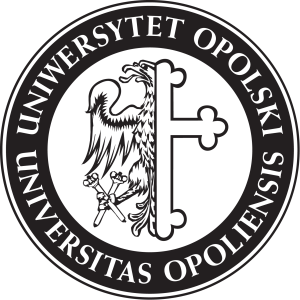Module 5 Part 10
Task 3
Imagine that you are the head of the department at a Polish university. You have run your programme in Polish forever, and recently, you decided to attract international students and opened a master’s degree in English. It benefits your department because you receive more student applications, but not all the colleagues speak English - including yourself - and although you support the idea in principle, you feel personally disconnected from the endeavour.
One day, a local student, the head of the student’s club you have known and interacted with for years, comes to your office to introduce their successor. You were excited about the new head of the student club - they organized some successful conferences and were very helpful with the department projects. When they come, you discover the incoming head is a foreign student who does not speak the local language.
What is your reaction?
You either:
- Accept the new candidate.
- Decline the new candidate.
Which one do you choose and why?
Now, analyze what it takes and what it gives - to you and the department - if a foreign student is assigned the head of the student’s club.
|
Benefits for you |
Benefits for department |
Costs for you |
Costs for department |
|
|
|
|
|
|
|
|
|
|
Imagine Özge, a Turkish master's student pursuing her degree in one of the Polish universities. Her dream is to work in London, but the tuition fees are too high there, so she decided to get a degree in English in Poland and use it as a springboard for a career in the UK. Özge is doing well in the first year and has decided to undertake more activities to learn more and build her CV. She tried to learn Polish, but she thought that her engagement with the country would be brief and there were other things she should spend her time on. She joins the students' research club, where she organizes a conference and is encouraged by others to take up the leading role. The regulations have it that the candidate for the head of the student club is to be approved by the head of the department. Özge is taken to the department by the current head of the student’s club for what she thinks is a courtesy introductory meeting. However, during the meeting, it turns out that the professor does not speak English and reacts reluctantly to her candidacy. Özge does not know exactly what the conversation is about because it is held in Polish. The head is visibly disturbed and leaves the room only for the local student to explain that the head said it was Poland and that a Polish student club is supposed to have a Polish head.
Now, take up the role of each of the three parties involved in the event and speculate what they might have felt before and after the incident.
You may want to consider the following emotions: excitement, pride, satisfaction, fear, annoyance, disappointment, anger, uncertainty, threat, sadness, embarrassment.
|
Before the incident |
||
|
Role |
Emotions |
Reasons for the emotions |
|
Head of the department |
|
|
|
Local student |
|
|
|
Özge, the foreign student |
|
|
|
After the incident |
||
|
Role |
Emotions |
Reasons for the emotions |
|
Head of the department |
|
|
|
Local student |
|
|
|
Özge, the foreign student |
|
|
Now, imagine you are the Polish student acting as the current head of the student’s club in this situation. What would you do? What would you say? To whom? What is most likely to solve and what is most likely to escalate the situation?
Debriefing
- What do you think was the goal of this session?
- Do you think people should learn the languages of the countries they go to?
- Discuss how and to what extent this session helped you practice:
- Taking different perspectives.
- Becoming more aware of your expectations.
- Reflecting on my biases.
- Understanding that people can have different interpretations of the same situation.
- Finding alternative solutions or approaches to an issue/problem/situation.
- Considering power relations in the context of migration.


